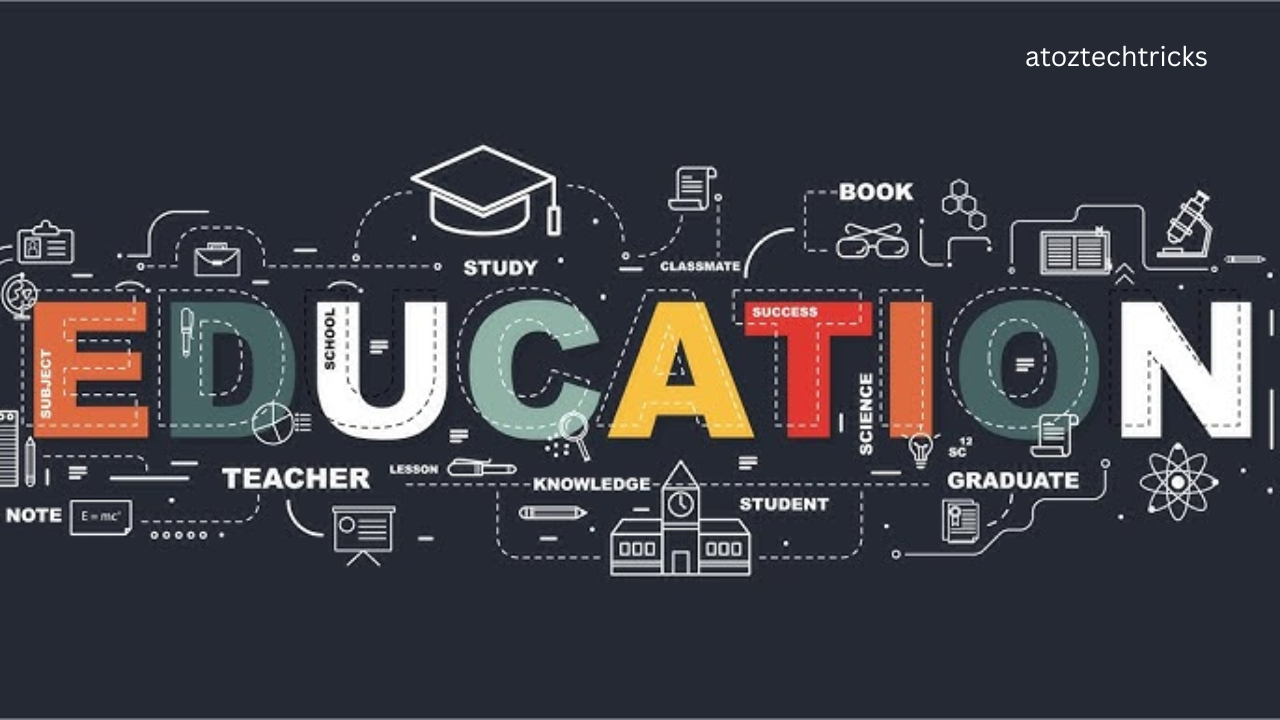Education Careers: Exploring Opportunities in the Field of Education
Education is one of the most critical sectors in any society, shaping future generations and impacting virtually every aspect of life. As the backbone of societal development, careers in education offer the opportunity to make a significant difference in people’s lives. This article will explore various education careers, highlighting their roles, responsibilities, and the qualifications needed to pursue them. Whether you’re passionate about teaching, administration, counselling, or educational technology, there’s a path in education that could be perfect for you.
1. Teaching Careers: The Heart of Education
Teaching is the most traditional and widely recognized career in education. Teachers are responsible for instructing students in a variety of subjects, fostering their intellectual and social development, and preparing them for future academic and career pursuits.
Business Careers: A Comprehensive Guide to Opportunities and Growth
1.1 Elementary School Teachers
Elementary school teachers work with children in grades K-5, focusing on foundational subjects such as reading, writing, mathematics, and science. They play a critical role in developing basic skills that students will build upon throughout their education. Patience, creativity, and a passion for working with young children are essential qualities for this role.
Qualifications:
- Bachelor’s degree in elementary education or a related field
- State-specific teaching license or certification
- Classroom experience through student teaching or internships
1.2 Middle School Teachers
Middle school teachers typically educate students in grades 6-8, focusing on more specialized subjects such as history, math, science, and language arts. This is a crucial period in students’ lives as they transition from childhood to adolescence, and middle school teachers need to be adept at managing the unique challenges that come with this age group.
Qualifications:
- Bachelor’s degree in education or the specific subject area
- State-specific teaching certification
- Student teaching experience
1.3 High School Teachers
High school teachers specialize in specific subjects such as mathematics, English, history, or biology. They prepare students for college or careers by offering more advanced and specialized knowledge. High school teachers also often engage in extracurricular activities, such as coaching sports or advising clubs.
Qualifications:
- Bachelor’s degree in the subject area or education
- State certification
- Experience through student teaching or related internships

2. Special Education Careers: Supporting Diverse Learners
Special education teachers work with students who have a wide range of learning, mental, emotional, and physical disabilities. They adapt general education lessons and teach various subjects, from basic skills to advanced concepts, based on each student’s needs.
2.1 Special Education Teacher
Special education teachers create individualized education plans (IEPs) for each student, tailoring lessons to help them reach their full potential. They work closely with parents, other educators, and professionals to provide comprehensive support to students with disabilities.
Qualifications:
- Bachelor’s or Master’s degree in special education
- State certification in special education
- Patience, empathy, and strong communication skills
2.2 Speech-Language Pathologists
Speech-language pathologists (SLPs) work with students who have speech, language, and communication disorders. They assess, diagnose, and treat speech and language problems to help students communicate more effectively. SLPs often work in schools but may also be employed in hospitals or private practice.
Qualifications:
- Master’s degree in speech-language pathology
- Certification from the American Speech-Language-Hearing Association (ASHA)
- State licensure
3. School Administration Careers: Leading the Way
School administrators oversee the operations of schools, including budgeting, staffing, and policy implementation. They play a key role in ensuring that schools run smoothly and that students receive a quality education.
3.1 School Principal
Principals are the top administrators in a school, responsible for the overall leadership and management of the school. They work with teachers, students, and parents to create a positive learning environment and ensure that academic standards are met.
Qualifications:
- Master’s degree in education administration or leadership
- State-specific certification for school administrators
- Extensive experience in teaching or school administration
3.2 Assistant Principal
Assistant principals support the principal in managing the daily operations of the school. They often focus on specific areas such as student discipline, teacher evaluation, or curriculum development. This role is often a stepping stone to becoming a principal.
Qualifications:
- Master’s degree in education administration or leadership
- State certification for school administrators
- Experience in teaching or educational leadership
3.3 School Superintendent
Superintendents oversee entire school districts, managing multiple schools and ensuring that district-wide policies are implemented effectively. They work with school boards, principals, and community leaders to improve education quality across the district.
Qualifications:
- Master’s or Doctorate degree in education administration
- Extensive experience in school administration
- Leadership and strategic planning skills
Exploring Finance Careers: Opportunities, Skills, and Paths to Success
4. Educational Support Careers: Enhancing Student Success
Educational support professionals work behind the scenes to ensure that students receive the resources and assistance they need to succeed academically and personally.
4.1 School Counselor
School counselors help students with academic, career, and personal development. They provide guidance on course selection, college applications, and career planning, as well as offer support for personal issues such as stress, bullying, or family problems.
Qualifications:
- Master’s degree in school counseling
- State-specific certification
- Strong interpersonal and problem-solving skills
4.2 School Psychologist
School psychologists work with students, teachers, and parents to address learning and behavioral issues. They conduct assessments, develop intervention strategies, and support students with emotional or psychological challenges.
Qualifications:
- Specialist or Doctoral degree in school psychology
- State licensure
- Experience in psychological assessment and intervention
4.3 Librarian/Media Specialist
Librarians or media specialists manage school libraries and media centers, providing students and teachers with access to books, digital resources, and other educational materials. They also teach students how to research and evaluate information effectively.
Qualifications:
- Master’s degree in library science or information science
- Certification as a school librarian
- Knowledge of digital and print resources
5. Higher Education Careers: Educating Beyond K-12
Careers in higher education involve teaching, research, administration, and support roles at colleges and universities. Higher education professionals play a crucial role in shaping the minds of students pursuing advanced degrees and professional careers.
5.1 College Professor
College professors teach courses in their area of expertise, conduct research, and publish academic papers. They may also advise students, serve on academic committees, and participate in faculty governance. Professors at research universities often split their time between teaching and research.
Qualifications:
- Doctoral degree in the subject area
- Experience in research and teaching at the college level
- Publications in academic journals
5.2 Academic Advisor
Academic advisors help college students select courses, choose majors, and plan their academic careers. They provide guidance on academic policies, degree requirements, and career opportunities, helping students stay on track to graduate.
Qualifications:
- Master’s degree in higher education, counseling, or a related field
- Experience in academic advising or student services
- Strong communication and organizational skills
5.3 College Administrator
College administrators manage various aspects of a university’s operations, from student services and academic affairs to financial management and campus facilities. They play a key role in shaping the institution’s policies and ensuring its smooth operation.
Qualifications:
- Master’s or Doctoral degree in higher education administration
- Extensive experience in university administration
- Leadership and strategic planning skills

6. Educational Technology Careers: Innovating Learning
As technology continues to transform education, careers in educational technology are becoming increasingly important. These professionals develop and implement technology solutions that enhance teaching and learning.
6.1 Instructional Designer
Instructional designers create educational materials and programs that incorporate technology to enhance learning. They work with teachers, administrators, and subject matter experts to design online courses, digital learning tools, and other educational resources.
Qualifications:
- Master’s degree in instructional design, educational technology, or a related field
- Experience in curriculum development and educational technology
- Knowledge of learning management systems (LMS) and e-learning tools
6.2 Educational Technology Specialist
Educational technology specialists help schools and universities integrate technology into their classrooms and curricula. They provide training for teachers, troubleshoot technical issues, and recommend new tools and platforms to improve the learning experience.
Qualifications:
- Bachelor’s or Master’s degree in educational technology or a related field
- Experience in teaching or technology integration
- Strong technical and communication skills
6.3 E-Learning Developer
E-learning developers design and develop online courses, multimedia presentations, and other digital learning materials. They work closely with instructional designers and subject matter experts to create engaging and effective online learning experiences.
Qualifications:
- Bachelor’s degree in instructional design, educational technology, or multimedia development
- Experience in e-learning design and development
- Proficiency in e-learning software and tools
7. Educational Policy and Research Careers: Shaping the Future of Education
Professionals in educational policy and research work to improve education systems through analysis, advocacy, and policy development. They conduct research on educational practices, analyze data, and recommend changes to improve educational outcomes.
7.1 Educational Policy Analyst
Educational policy analysts study and evaluate education policies at the local, state, and national levels. They conduct research, analyze data, and provide recommendations to policymakers, school leaders, and educators to improve education systems.
Qualifications:
- Master’s or Doctoral degree in education policy, public policy, or a related field
- Experience in policy analysis or education research
- Strong analytical and communication skills
7.2 Education Researcher
Education researchers conduct studies to understand and improve educational practices and outcomes. They may work for universities, government agencies, or think tanks, exploring topics such as curriculum effectiveness, teacher performance, and student achievement.
Qualifications:
- Doctoral degree in education, sociology, psychology, or a related field
- Experience in quantitative and qualitative research methods
- Strong analytical and writing skills
7.3 Educational Consultant
Educational consultants advise schools, districts, and other educational organizations on a range of issues, including curriculum development, teacher training, and school improvement. They may work independently or as part of a consulting firm, helping clients achieve their educational goals.
Qualifications:
- Master’s or Doctoral degree in education or a related field
- Experience in education, administration, or consulting
- Strong problem-solving and communication skills

Education careers offer a diverse range of opportunities to make a lasting impact on individuals and society as a whole. Whether you’re interested in teaching, administration, technology, or policy, there’s a path in education that can align with your passions and skills. As the education landscape continues to evolve, driven by technological advancements and changing societal needs, the demand for dedicated and innovative education professionals will only grow. By pursuing a career in education, you can play a vital role in shaping the future, one student at a time.




Post Comment